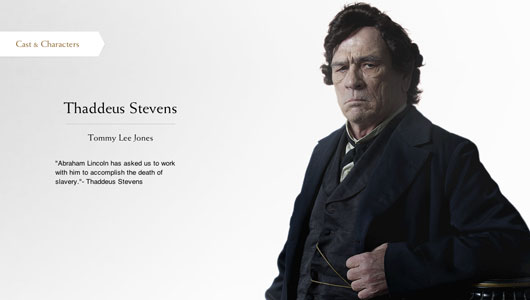
On Feb. 24, 1868 the House voted to impeach President Andrew Johnson, who succeeded Abraham Lincoln as president of the United States.
Although the impeachment battle focused primarily on the separation of powers between Congress and the president (Johnson tried to fire a cabinet official without, as the Tenure of Office Act stipulated, getting approval from the Senate) the real reson was majority opposition by lawmakers in Congress to Johnson’s views on civil rights and Reconstruction of the South after the Civil War.
Johnson, as president, was a strong opponent of civil and political rights for blacks. He basically supported the return, after the Civil War, of the old prewar social and economic system in the South, except for the institution of slavery itself.
He opposed the Civil Rights Act of 1866 and the Fourteenth Amendment to the U.S. Constitution.
Thaddeus Stevens, a leader of the Radical Republicans, fought for laws that would provide property to freed slaves and equal rights including voting rights. Property of large landowners who had backed the Confederacy would, under his plan, be confiscated and turned over to former slaves in 40-acre lots. Stevens wanted to break the back of the old slaveholding class and prevent it from ever returning to power in the South.
After Pres. Andrew Johnson vetoed the civil rights bill Congress moved more and more in the direction of the Stevens plan for Reconstruction and by June of 1867 it passed the 14th Amendment to the Constitution. The amendment declared that all persons born in the U.S. were automatically citizens. This included all ex-slaves. It also prohibited states from denying citizens equal protection unsder the laws.
During the summer of 1866 it became clear to anyone who doubted before then that the former slaves were going to need the protection of the federal government. On July 30 a multi-racial group in New Orleans tried to meet to discuss the issues involved and was attacked by a mob of ex-Confederate soldiers. Some 40, mostly black, attendees were killed. News of the “New Orleans Massacre” shocked northerners and proved to many that President Johnson was really an opponent of civil rights. Support for the Stevens position in Congress grew even more.
Under Stevens’ leadership, Congress passed a reconstruction law. The law abolished all Southern state governorships set up under Johnson’s program. In their place Congress created five military districts, each commanded by an army officer. Johnson vetroed the law but Congress overrode the veto.
In a series of follow-up laws Congress required each former Confederate state to hold new constitutional conventions made up of both white and black delegates. Any new constitutions coming out of these conventions had to include the right to vote for all black adult males. In addition Congress directed the southern states to ratify the 14th Amendment before theey could apply for readmission to the union. Johson vetoed every one of these follow-up laws but Congress overrode each of his vetoes.
Then Congress began to pressure Johnson himself by passing the Tenure of Office Act, which forbade the president from firing his cabinet officials woithout Senate approval. Johnson decided to test the law and attempted to fire his Secretary of War, Edwin Stanton, for backing the Stevens plan for Reconstruction. On the basis of that firing, Congress voted on Feb. 24, 1868 to impeach Johnson. The impeachment later failed by one vote in the U.S. Senate.
Photo: Tommy Lee Jones as Thaddeus Stevens. Lincoln movie official site.












Comments